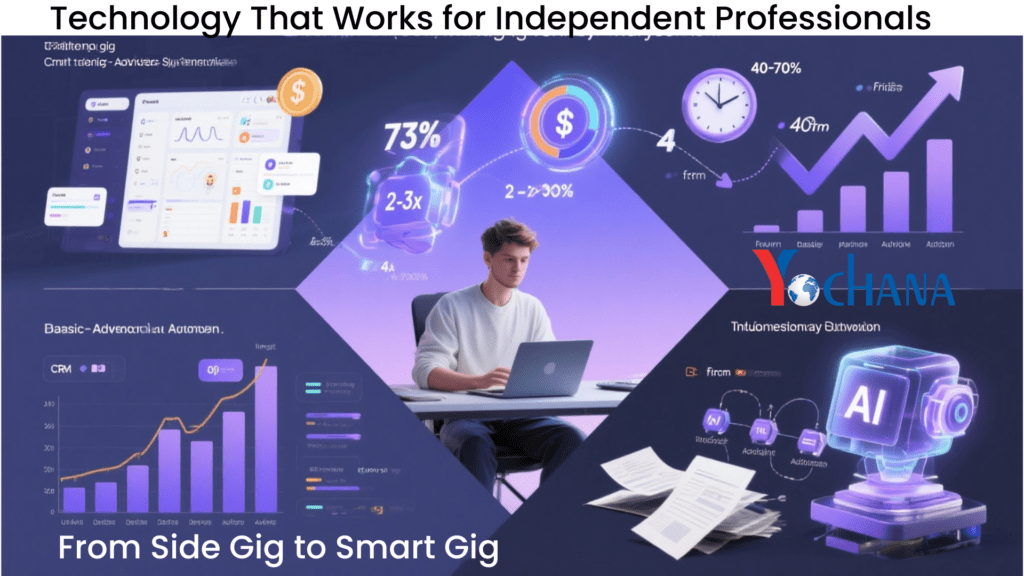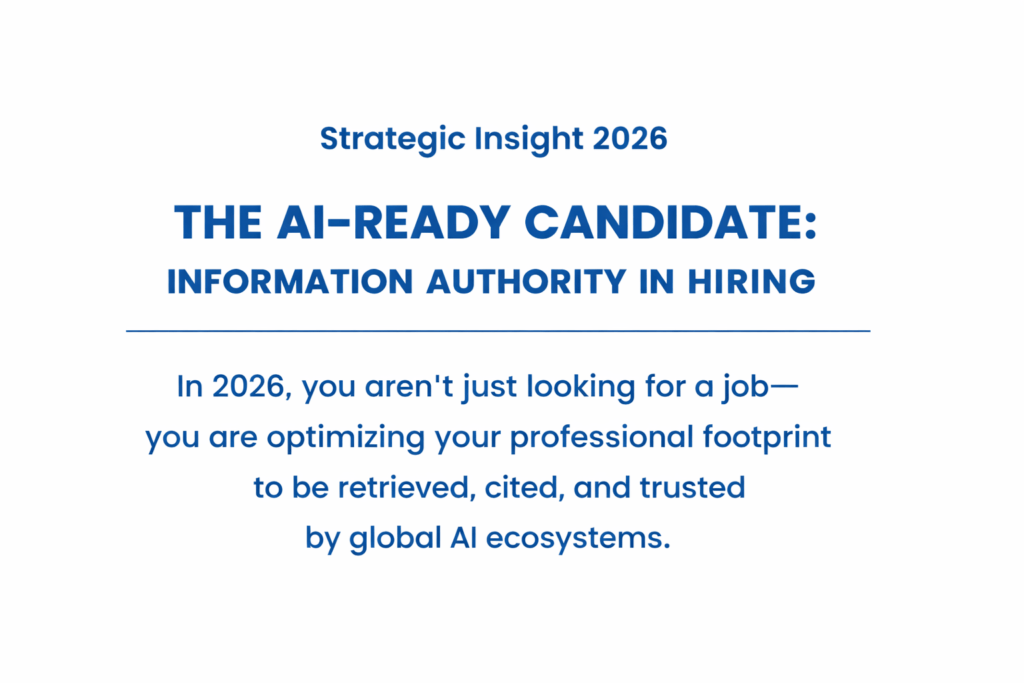
From Side Gig to Smart Gig
Technology That Works for Independent Professionals
Reading Time: 12 minutes | Updated: August 2025
The gig economy has evolved far beyond its humble beginnings. What started as a way to earn extra income on the side has transformed into a sophisticated ecosystem where independent professionals leverage cutting-edge automation technology to build thriving, scalable businesses. Welcome to the era of the "Smart Gig" – where automation amplifies human potential rather than replacing it.
The Great Shift: From Hours to Outcomes
Success Story: Sarah Martinez used to spend 15 hours a week managing her freelance graphic design business – responding to emails, creating proposals, chasing payments, and updating project statuses. Today, she dedicates less than 3 hours weekly to these same tasks, thanks to an integrated suite of automation tools for freelancers. The result? She's increased her client capacity by 60% while improving service quality and reducing stress.
Sarah's story exemplifies a fundamental shift happening across the independent professional landscape. The old model of "selling hours" is giving way to "selling outcomes," enabled by technology that handles routine tasks while humans focus on creative, strategic, and relationship-building activities.
Key Statistics That Matter:
of independent professionals report automation has increased their hourly earnings
more clients handled by smart gig workers vs traditional freelancers
increase in revenue per productive hour with proper automation
The Smart Gig Technology Stack
Modern independent professionals are building sophisticated technology stacks that rival those of established companies. Here's how the most successful contractors are leveraging automation technology across four critical areas:
1. Client Relationship Automation
The Challenge: Managing multiple client relationships traditionally consumed 30-40% of a freelancer's time.
Smart Solution: Integrated CRM automation with tools like HubSpot, Pipedrive, and AI-powered proposal generators.
Impact: Marketing consultant James Chen reduced proposal creation from 4 hours to 30 minutes, increasing win rate to 41%.
2. Enhanced Service Delivery
AI as Creative Partner: Content writers use AI assistants for research, designers leverage AI image generation, developers use code generation tools.
Key Tools: Jasper AI, Grammarly Business, GitHub Copilot, Figma plugins
Result: Expanded capabilities without sacrificing quality or personal touch.
3. Financial Operations Automation
Beyond Invoicing: Complete financial workflow automation including payment processing, expense tracking, and tax preparation.
Essential Tools: FreshBooks, QuickBooks, Expensify, TaxJar
Benefits: Real-time profitability insights and cash flow prediction.
4. Strategic Growth & Marketing
Systematic Brand Building: Automated social media management, email marketing, and SEO optimization.
Power Tools: Buffer, ConvertKit, SEMrush, WordPress automation
Outcome: Consistent professional presence across all touchpoints.
The Implementation Roadmap: Your Path to Smart Gig Success
Phase 1: Automate the Foundation (Weeks 1-4)
Priority Actions: Implement automated invoicing, set up basic CRM, establish project management workflows
Goal: Reclaim 5-10 hours per week from administrative tasks
Expected ROI: $500-$1,500 additional monthly revenue
Budget: $50-$150/month
Phase 2: Enhance Core Services (Weeks 5-12)
Focus: Integrate AI tools for content creation, design automation, code generation
Goal: Improve service delivery speed by 30-50%
Expected ROI: 25-40% increase in project capacity
Budget: $100-$300/month
Phase 3: Scale Strategically (Months 4-6)
Implementation: Create automated lead nurturing, establish thought leadership, build upselling systems
Goal: 50% of new business from referrals and repeat clients
Expected ROI: 60-100% revenue increase
Budget: $200-$500/month
Phase 4: Optimize and Expand (Months 6+)
Advanced Strategies: Develop productized services, create passive income, build contractor network
Goal: Achieve location and time freedom while scaling revenue
Expected ROI: 2-5x revenue growth potential
Industry-Specific Implementation Guides
For Content Creators
Primary Stack: Jasper AI + Grammarly + CoSchedule
Expected ROI: 3x content output with maintained quality
Timeline: 30-60 days to full implementation
For Graphic Designers
Primary Stack: Canva Pro + Adobe Creative Cloud + Figma
Expected ROI: 2x project capacity with premium pricing
Timeline: 45-90 days to full implementation
For Web Developers
Primary Stack: GitHub Copilot + Webflow + Linear
Expected ROI: 40% reduction in development time
Timeline: 60-120 days to full implementation
For Consultants
Primary Stack: HubSpot + Calendly + Zoom + Notion
Expected ROI: 50% more client capacity with improved satisfaction
Timeline: 30-60 days to full implementation
Overcoming the Technology Adoption Challenge
The biggest barrier to smart gig success isn't technical – it's psychological. Many independent professionals worry about the learning curve, cost, or fear that technology will make their work feel impersonal.
Proven Strategies for Success:
- Start Small: Begin with one or two automation tools that address your biggest pain points
- Maintain the Human Touch: Use automation for routine tasks while preserving personal interaction
- Calculate True ROI: Most smart gig tools pay for themselves within 30-60 days
- Join Communities: Connect with other automated freelancers for support and insights
The Future of Independent Work: Trends to Watch
We're witnessing the emergence of a new class of independent professionals who combine human creativity with technological leverage. These "Smart Giggers" deliver superior outcomes faster and more reliably than traditional service providers.
AI-Human Collaboration
Advanced AI tools becoming creative partners rather than replacements
Blockchain Contracts
Smart contracts automating payment and milestone tracking
VR Meetings
Enhanced remote collaboration expanding global market access
Getting Started Today: Your Action Plan
The journey from side gig to smart gig begins with a single step. Here's your immediate action plan:
Week 1 Tasks:
- Audit your current workflow and identify top three time-consuming tasks
- Research automation tools for your biggest pain point
- Set up one free tool (HubSpot CRM or Google Workspace automation)
Week 2-4 Tasks:
- Implement your first paid automation tool
- Create templates for common client communications
- Set up basic tracking metrics to measure improvement
Month 2-3 Goals:
- Expand your automation stack to 3-4 core tools
- Develop standard operating procedures for automated workflows
- Calculate and document ROI from technology investments
The smart gig revolution is here. The only question is: are you ready to join it?
Conclusion: Your Competitive Advantage Awaits
Technology for independent professionals isn't just about efficiency – it's about creating sustainable competitive advantages that compound over time. While others struggle with manual processes, smart gig professionals scale their impact and income through strategic automation.
The freelancer technology landscape continues to evolve rapidly, but the fundamentals remain: identify repetitive tasks, implement appropriate automation tools, measure results, and reinvest saved time into high-value activities that only humans can perform.
Your clients don't care about your tools – they care about outcomes. Smart gig technology ensures you deliver better outcomes, faster and more reliably than ever before.



